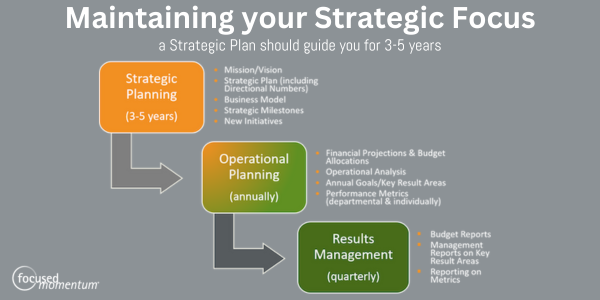3 essential elements of epic strategy
A great strategy is a great story. And, like all great stories, there are classic elements which, when expertly crafted, evolve a good plan into a...

Tacticians are those brilliant folks on your team who know how to get things done. They are not typically the ones that come up with the new ideas, but they are the ones that can give you incredibly valuable insight into whether or not the new ideas are viable. As expert project managers, they are the heart and soul of every highly successful organization, yet they are often the LAST person who is excited about a strategic planning discussion.
Strategic thinkers or “big idea” generators often see tacticians as a hindrance in their creative process because they ask annoying ‘how’ questions before the concept is fully developed. When the idea creation process is halted to address an executional question, it tends to shut down the creative process, possibly killing a great idea. In many cases, those formulating the ideas have not finished building out their concept enough to answer a “how to implement it” question, and the idea is dismissed too prematurely.
You might have experienced this during a meeting in which one part of the group is using “What if…” or “Have we ever…” or “Would it be possible…” phrases only to have others in the room stay quiet for a while and then chime in with “Yes, but…” or “Are you saying we would blank?” or “How is this going to help x…”
Even tacticians sometimes view themselves as an obstacle because they do not feel that they can contribute to the creative process. When really big ideas (or many ideas) are generated simultaneously, the uber project manager can feel left behind or frustrated by the process. Extended ideation (or having too many ideas) can be overwhelming when your focus is on detailing a plan of action.
However, the solution is not to separate the idea generators from the tacticians. The goal is to create a process in which the two play together, building on the strengths each brings to the table. When they both participate in the process, plans are innovative and achievable. Performance against strategic goals improves dramatically.
Connect the ideas. When there is synergy or a natural clustering around an idea that sounds compelling, your tactical thinkers will recognize it first. When they start to participate in the forming of the concept, they can quickly move a clustering of ideas into a core concept. Ask them to listen with this goal in mind. Ask them to use their tactical mind as a filter in creative discussions. While initially a stretch for your tacticians, they will grasp the role quickly – they are naturally gifted for it.
Determine the viability of an idea. At some point, big idea generation runs its course, and the discussion turns to whether or not this is a viable idea for the organization. This is the perfect time for the tactician to use their vast practical experience to vet the concept. They need to hold off until the concept is fully formed, but once it is, they are ideally qualified to guide strategic development conversations toward the most viable solutions for the organization.
Accelerate the implementation of ideas. When excellent managers get behind an idea, they can energize it and accelerate the implementation process. If they have been active in the strategic thinking process (using the roles in #1 and #2 above), they have a deeper sense of what the goals and objectives are for the new plan and will align steps to implement them extremely quickly. Let them take the lead on how to integrate the new thinking into the current plans and recognize their role in its formation and vetting.
Although tacticians may not participate equally in each phase of the strategy development process, guiding their engagement in the earlier stages will yield a significant payoff, as they will be crucial to successful implementation.
Download our free strategic planning guide to get started today.

A great strategy is a great story. And, like all great stories, there are classic elements which, when expertly crafted, evolve a good plan into a...

You put so much effort into your beautiful new strategic direction. It is well crafted; you were able to effectively engage multiple stakeholder...

For those with a fiscal calendar starting in January, the autumn months will be dominated by one thing: budgeting. By mid-September, the budget...